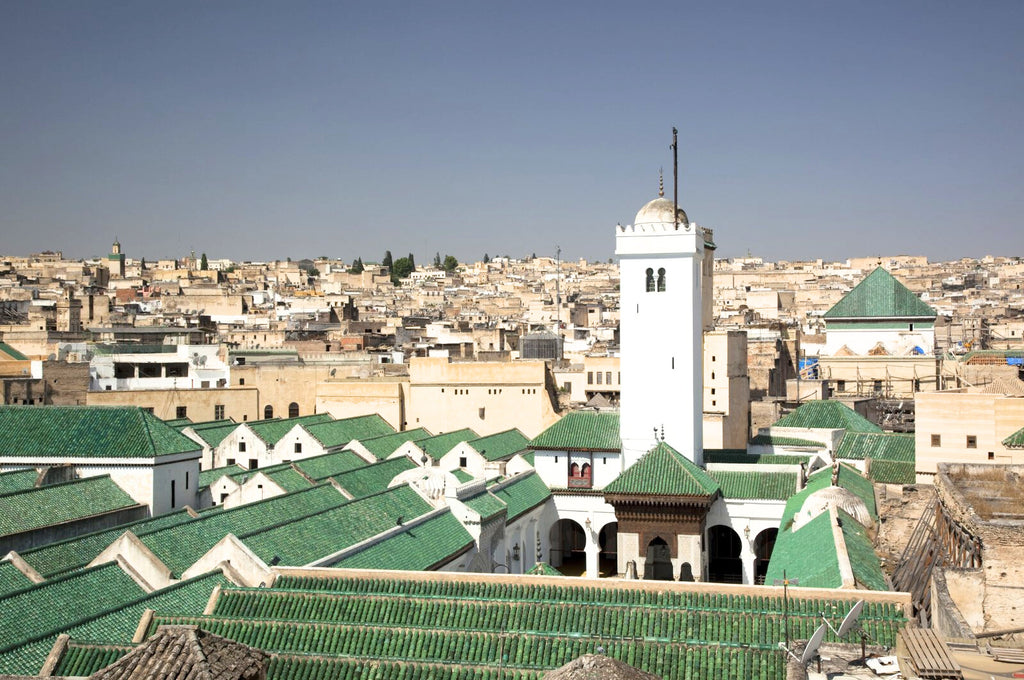What is The Oldest University In The World?

Nestled within the historic city of Fez, Morocco, Al-Qarawiyyin University stands as a testament to the enduring legacy of Islamic scholarship and the remarkable contributions of Muslim thinkers to the world. Founded in 859 AD by the visionary Fatima al-Fihri, Al-Qarawiyyin is widely recognized as the oldest existing degree-granting university in the world. Despite its age, Al-Qarawiyyin's influence transcends mere historical significance; it embodies the spirit of intellectual inquiry, cultural exchange, and academic excellence that has characterized Islamic civilization for centuries.
The story of Al-Qarawiyyin begins with its founder, Fatima al-Fihri, a devout Muslim woman whose vision and generosity laid the foundation for one of the most revered institutions of learning in human history. Motivated by a deep commitment to education and the pursuit of knowledge, al-Fihri endowed her wealth to establish a center of learning that would serve as a beacon of enlightenment for generations to come.
From humble beginnings, Al-Qarawiyyin quickly evolved into a thriving intellectual hub, attracting scholars and students from across the world. Under the patronage of successive rulers and benefactors, the university flourished, expanding its curriculum to encompass a wide range of disciplines, including law, medicine, mathematics, theology, and astronomy.
What sets Al-Qarawiyyin apart from other educational institutions of its time is its comprehensive approach to learning and its commitment to excellence. Unlike the narrowly focused madrasas of the era, Al-Qarawiyyin offered a holistic education that combined religious instruction with the study of secular subjects. Its faculty included some of the most eminent scholars of the Islamic world, whose teachings and writings continue to inspire and enlighten scholars to this day.
Moreover, Al-Qarawiyyin was among the first institutions to confer degrees upon its graduates, marking their scholarly achievements and recognizing their mastery of various fields of study. This practice, which would later become a hallmark of Western universities, underscores the university's pioneering role in shaping the modern concept of higher education.
Over the centuries, Al-Qarawiyyin has evolved in response to changing social, cultural, and intellectual currents. It has weathered periods of decline and upheaval, only to emerge stronger and more resilient than before. Through it all, the university has remained steadfast in its commitment to excellence, continually refining its curriculum, expanding its facilities, and embracing new methodologies and technologies.
Today, Al-Qarawiyyin stands as a vibrant center of learning, welcoming students and scholars from around the world. Its libraries and archives house a wealth of rare manuscripts and documents, preserving the intellectual heritage of Islamic civilization for future generations. Its faculty continues to push the boundaries of knowledge, conducting groundbreaking research in fields ranging from science to Aeronautical Engineering.
The legacy of Al-Qarawiyyin extends far beyond the confines of its walls, shaping the course of human history in profound and enduring ways. Its graduates have gone on to become leaders in their fields, making significant contributions to science, literature, art, and philosophy. The university's impact can be felt in every corner of the globe, from the architectural wonders of Andalusia to the scientific advancements of the Islamic Golden Age.
Moreover, Al-Qarawiyyin serves as a powerful symbol of Islam's rich intellectual heritage and its enduring commitment to the pursuit of knowledge. At a time when ignorance and intolerance threaten to divide humanity, Al-Qarawiyyin stands as a beacon of enlightenment, reminding us of the transformative power of education to bridge cultures, foster understanding, and promote peace.
In addition to its role as a symbol of Islam's intellectual legacy, the University of al-Qarawiyyin's longevity and contributions also underscore the importance of accurate historical understanding. Claims suggesting its founding in 1965 not only misrepresent the university's rich history but also reflect a broader pattern of Western-centric narratives seeking to overshadow the profound contributions of Islamic civilization and the East. By acknowledging and rectifying such misconceptions, we can honor the true origins of institutions like al-Qarawiyyin and recognize the diverse and interconnected nature of human progress and knowledge.
Al-Qarawiyyin stands as an enduring testament to the power of knowledge and the resilience of human endeavor. Its centuries-old legacy of scholarship, innovation, and cultural exchange serves as an inspiration for generations past, present, and future. As we reflect on its remarkable contributions to learning and civilization, let us embrace the spirit of enlightenment that al-Qarawiyyin embodies. With its guidance, we can strive to build a future where education is cherished as a beacon of hope, understanding, and progress—a force that empowers individuals and societies to think critically, question assumptions, and pursue truth without succumbing to indoctrination or dogma.
Our "Oldest University" products are available in many colors and sizes for adults and children in our History Department.







